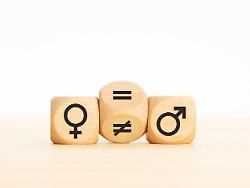Thursday, October 28, 2021
According to the EU report
Little progress on gender equality
There is only minimal improvement in equality between men and women in the European Union. It will take several generations before full parity – should the pace stay that way. Germany does not even occupy a single-digit place in the EU ranking.
Europe is still making slow progress in matters of equality – and this is likely to stay that way because of the corona pandemic. In the Gender Equality Index 2021, the European Union achieved a value of 68 out of a possible 100 points, as the European Institute for Gender Equality (Eige) announced. The value was thus 0.6 points higher than in the last survey in the previous year. At this rate, it will take almost three generations to achieve full gender parity.
Germany is therefore slightly above the EU average and ranks tenth with 68.6 points – an increase of 1.1 points. In terms of equality within the EU, Sweden (83.9 points) and Denmark (77.8 points) remain in the lead, while Greece continues to bring up the rear (52.5 points). The biggest winners include Luxembourg, Lithuania and the Netherlands, while Slovenia was the only one of the 27 EU countries to step backwards.
According to the information, the index values are largely based on data from 2019. They do not therefore capture the effects of Corona on gender equality. “Europe has made fragile progress in terms of gender equality. But the corona pandemic threatens great losses,” said Eige director Carlien Scheele. Women, for example, are overrepresented in the health care system and are therefore exposed to a higher risk of infection, while men infected with corona are at higher risk of having to be hospitalized.
The greatest inequality between men and women remains in management positions. Despite great progress since 2010, there are still significantly fewer women at the controls in politics and business. In the other five areas examined (work, money, time, knowledge and health), progress is also slow. During the coronavirus pandemic, inequalities in unpaid work for household, children and home care have increased.
